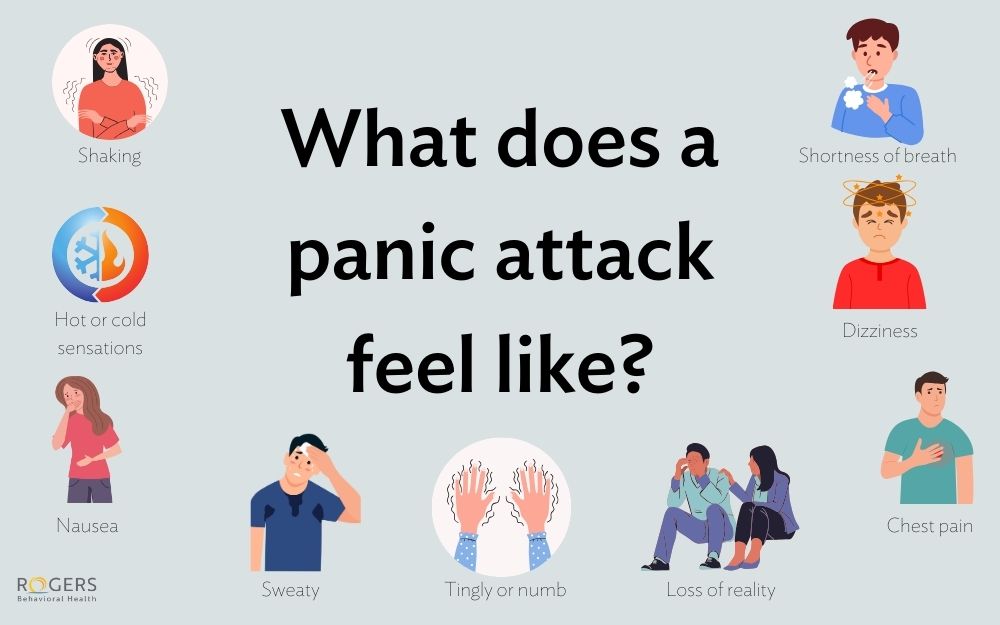ARFID: Understanding and treating the disorder
Posted on 12/14/23 06:35:am
Share this article:
The medical and social consequences of Avoidant/Restrictive Food Intake Disorder (ARFID) are often compared to those seen in other eating disorders such as Anorexia Nervosa. A major difference between ARFID and other eating disorders is that people with ARFID are not overly concerned with body image and are typically not worried about changes in weight.
How does ARFID develop?
ARFID presents in different ways and can develop at any point in life. For some people, a highly selective pattern of eating starts in early childhood, with avoidance of specific foods or new foods, due to texture or taste. This restrictive pattern may make it hard to eat in various social settings or may impact growth and development.
Another way that ARFID can start is with a negative experience surrounding a particular food, such as an episode of choking or vomiting. Avoidance of eating some foods or even at all can start following such an event.
Other conditions that impact appetite may also lead to ARFID since with certain medical conditions, people don’t feel normal hunger cues. For example, sometimes people with depression or anxiety disorders lose interest in eating and then develop a separate problem with their weight and eating pattern that meets the criteria for ARFID. It’s important to recognize that it’s not that someone is choosing not to eat; they’re actually having a different experience with appetite and are impacted by the weight loss or changes in nutrition.
Can a parenting style lead to ARFID or another eating disorder?
The answer is no.
There are sensory differences in ARFID and traits in other developmental or genetic factors involving metabolism that contribute to eating disorders like Anorexia Nervosa and ARFID. Families may have one child who has the problem and other children who eat with a regular pattern. However, families do play an important role in helping people with ARFID recover.
Does ARFID affect a particular demographic?
ARFID is often diagnosed in children and adolescents, but it can occur in adulthood as well. ARFID affects males and females at around the same rate.
It was first recognized officially as a diagnosable illness in the DSM 5 beginning in 2013; and due to this, research into ARFID is still in progress. Like other eating disorders, however, it can develop regardless of race, gender, wealth, or many societal factors.
Does ARFID have common co-occurring disorders and illnesses?
It’s typical for someone who is diagnosed with ARFID to also have a co-occurring anxiety or mood disorder, or to have a phobia or Obsessive compulsive disorder (OCD). ARFID is more common among people with Autism Spectrum Disorder as well. In addition to co-occurring mental illness, it’s important to consider physical illness that can come as a consequence of or be contributing to poor nutrition. Medical conditions and being underweight can cause things including a low mood and preoccupations.
If there is significant nutritional deficiency, it can lead to weight loss or , for younger people, failure to achieve an expected weight, as well as interference with psychosocial functioning.
What is available for ARFID treatment?
Rogers uses a combination of cognitive behavioral therapy with exposure and response prevention and family therapy to treat ARFID. We address nutritional and weight deficits and assist with eating since being underweight may maintain the problem. This approach helps people to tolerate emotional experiences and to change behaviors including avoidance in a step wise way, which helps with getting someone to eat a wider variety of food and in higher quantities. Our Los Angeles clinic now offers a Severe Picky Eating Recovery program for children and teens.
Finding eating disorder care at Rogers Behavioral Health
Treatment for eating disorders is offered at many Rogers locations across the country – you can call 800-767-4411 for a free, confidential screening or request a screening online.
If you think you may have ARFID or another eating disorder, please take our eating disorder quiz or review our fact page. This is not a diagnosis, but can bring some peace of mind if you are experiencing anxiety over possibly having an eating disorder.



